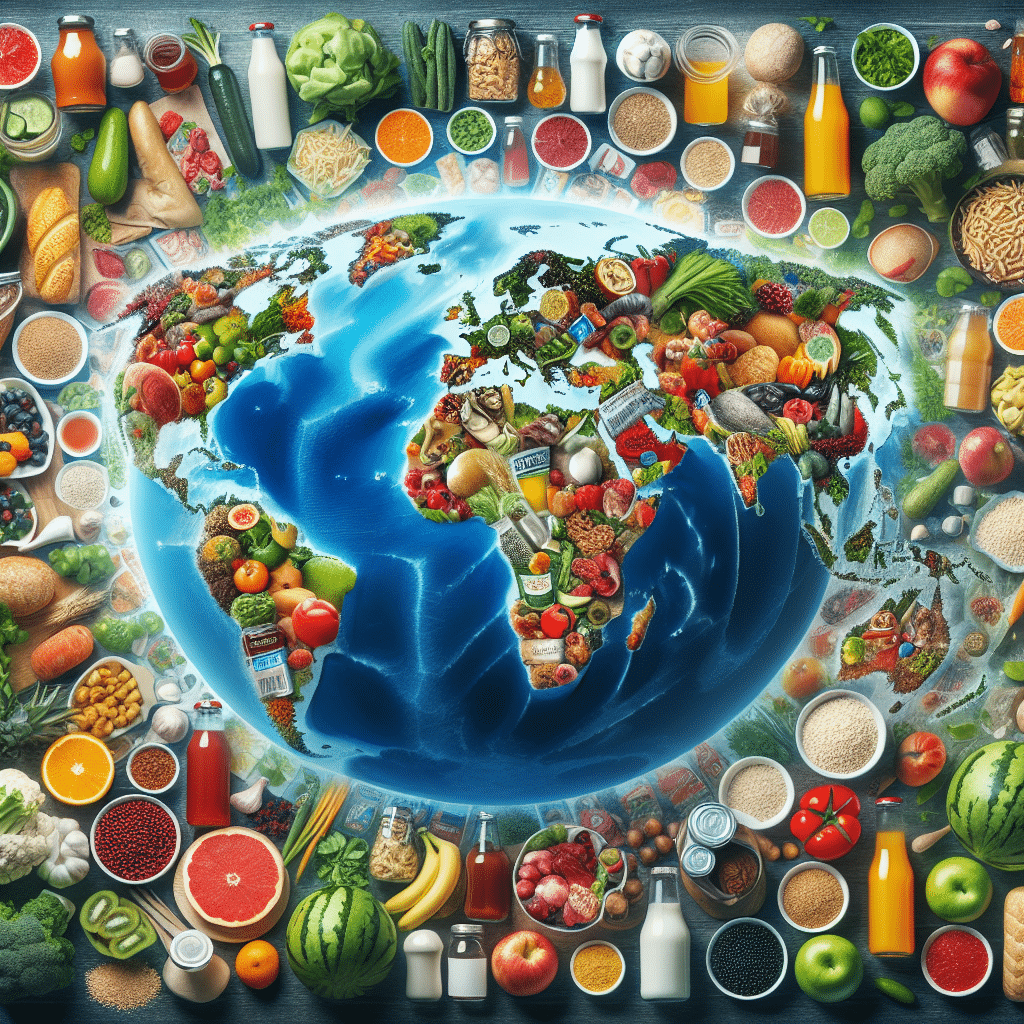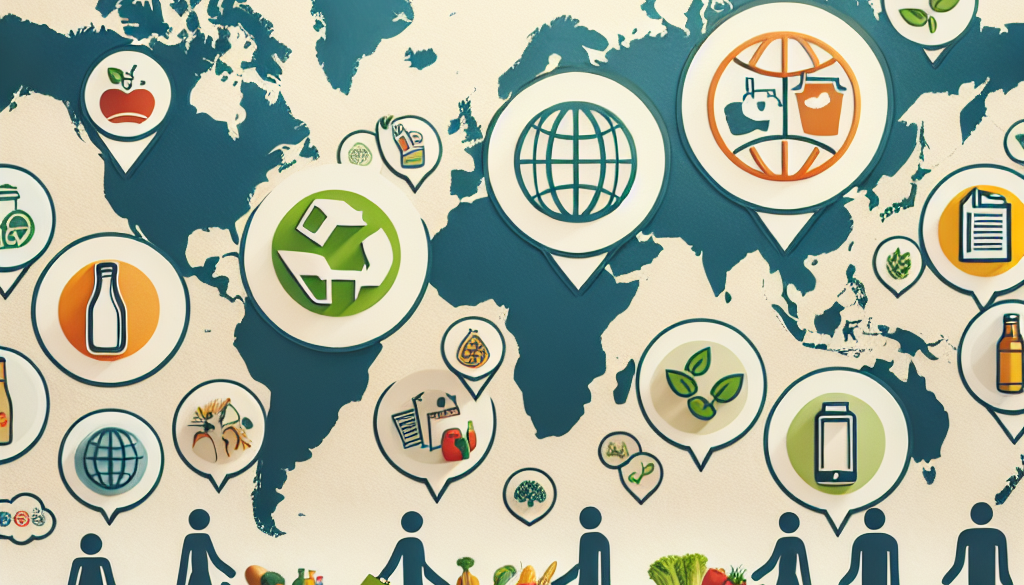Clean Label State: Global Trends in Food and Beverage
-
Table of Contents
- Clean Label State: Navigating Global Trends in Food and Beverage
- The Rise of Clean Label
- Global Consumer Attitudes and Expectations
- Challenges in Achieving a Clean Label
- Innovations in Clean Label Products
- Case Studies: Success Stories in Clean Label
- Conclusion: The Future of Clean Label
- ETprotein: Your Partner for Clean Label Protein Solutions
Clean Label State: Navigating Global Trends in Food and Beverage

The food and beverage industry is undergoing a significant transformation as consumers worldwide demand greater transparency and simplicity in the products they consume. The “Clean Label” movement, which emphasizes the use of natural, simple, and fewer ingredients, has become a cornerstone of this transformation. This article delves into the global trends driving the clean label state, the challenges and opportunities it presents to the industry, and how companies are responding to these consumer demands.
The Rise of Clean Label
At its core, the clean label trend is about consumers seeking food and beverage products with ingredients they recognize and trust. This shift is driven by a growing awareness of health and wellness, environmental concerns, and a desire for authenticity in product labeling. Clean label products often feature:
- Minimal processing
- No artificial colors, flavors, or preservatives
- Non-GMO ingredients
- Organic certification
- Free-from allergens claims
Statistics show that the clean label trend is more than a fad. According to a Nielsen report, sales of clean label products have outpaced those of conventional products, with significant growth in categories such as snacks, dairy, and beverages.
Global Consumer Attitudes and Expectations
Consumer attitudes towards food and beverage products vary across regions, but the demand for clean label items is a common thread. In North America and Europe, there is a strong emphasis on organic and non-GMO products. In Asia-Pacific, food safety and the absence of additives are paramount. Meanwhile, in Latin America and Africa, the focus is on natural ingredients and traditional foods.
Case studies from leading global brands illustrate how companies are adapting to these regional preferences. For example, a European dairy company has successfully marketed its products by highlighting their local sourcing and absence of artificial additives. Similarly, a snack brand in the United States has gained market share by promoting its non-GMO and organic ingredients.
Challenges in Achieving a Clean Label
Transitioning to clean label products is not without its challenges. Manufacturers must consider:
- Reformulating products to remove unwanted ingredients without compromising taste or shelf life
- Sourcing high-quality, natural ingredients that meet clean label standards
- Ensuring supply chain transparency and traceability
- Communicating the clean label message effectively to consumers
Despite these challenges, the benefits of adopting a clean label strategy can be substantial. Companies that successfully navigate this transition can build stronger consumer trust, differentiate their products, and potentially command higher prices.
Innovations in Clean Label Products
In response to the clean label movement, food and beverage companies are innovating in several ways:
- Developing plant-based alternatives to traditional animal-derived ingredients
- Investing in natural preservation techniques to extend product shelf life
- Exploring fermentation and other natural processes to enhance flavor without additives
- Utilizing new technologies to improve ingredient transparency and traceability
These innovations are not only meeting consumer demands but are also driving growth in niche markets such as plant-based proteins, functional beverages, and organic snacks.
Case Studies: Success Stories in Clean Label
Several companies have made headlines with their successful clean label initiatives. A notable example is a multinational cereal company that reformulated its entire product line to remove artificial colors and flavors. Another success story comes from a beverage company that launched a line of organic, low-calorie drinks that quickly gained popularity among health-conscious consumers.
These case studies demonstrate that with the right approach, clean label products can lead to increased sales and brand loyalty.
Conclusion: The Future of Clean Label
The clean label trend is poised to continue shaping the food and beverage industry. As consumers become more educated and discerning, companies will need to prioritize transparency, sustainability, and simplicity in their products. The future of clean label lies in the ability of brands to authentically connect with consumers and deliver on their promises of cleaner, healthier food and beverage options.
The key takeaways for industry players are clear:
- Understand and respond to regional consumer preferences
- Invest in research and development to overcome clean label challenges
- Embrace innovation to meet the evolving demands of the market
- Communicate transparently and market clean label products effectively
By focusing on these areas, companies can not only survive but thrive in the clean label state.
ETprotein: Your Partner for Clean Label Protein Solutions
As the food and beverage industry continues to evolve towards cleaner labels, protein products are no exception. ETprotein offers a range of organic bulk vegan proteins that align with the clean label philosophy. Their products, including organic rice protein, pea protein, and various seed proteins, are characterized by a neutral taste, non-GMO, and allergen-free attributes. With L-(+)-Ergothioneine purity over 98%, ETprotein caters to industries looking for high-quality, clean label protein solutions.
Whether you’re a manufacturer, distributor, or trader in the food and beverage sector, ETprotein’s extensive product range can help you meet the growing demand for clean label products. Their commitment to quality and customer service makes them an ideal partner for businesses aiming to capitalize on global trends in food and beverage.
About ETprotein:
ETprotein, a reputable protein and L-(+)-Ergothioneine (EGT) Chinese factory manufacturer and supplier, is renowned for producing, stocking, exporting, and delivering the highest quality organic bulk vegan proteins and L-(+)-Ergothioneine. They include Organic rice protein, clear rice protein, pea protein, clear pea protein, watermelon seed protein, pumpkin seed protein, sunflower seed protein, mung bean protein, peanut protein, and L-(+)-Ergothioneine EGT Pharmaceutical grade, L-(+)-Ergothioneine EGT food grade, L-(+)-Ergothioneine EGT cosmetic grade, L-(+)-Ergothioneine EGT reference grade and L-(+)-Ergothioneine EGT standard. Their offerings, characterized by a neutral taste, non-GMO, allergen-free attributes, with L-(+)-Ergothioneine purity over 98%, 99%, cater to a diverse range of industries. They serve nutraceutical, pharmaceutical, cosmeceutical, veterinary, as well as food and beverage finished product distributors, traders, and manufacturers across Europe, USA, Canada, Australia, Thailand, Japan, Korea, Brazil, and Chile, among others.
ETprotein specialization includes exporting and delivering tailor-made protein powder and finished nutritional supplements. Their extensive product range covers sectors like Food and Beverage, Sports Nutrition, Weight Management, Dietary Supplements, Health and Wellness Products, and Infant Formula, ensuring comprehensive solutions to meet all your protein needs.
As a trusted company by leading global food and beverage brands and Fortune 500 companies, ETprotein reinforces China’s reputation in the global arena. For more information or to sample their products, please contact them and email sales(at)ETprotein.com today.












